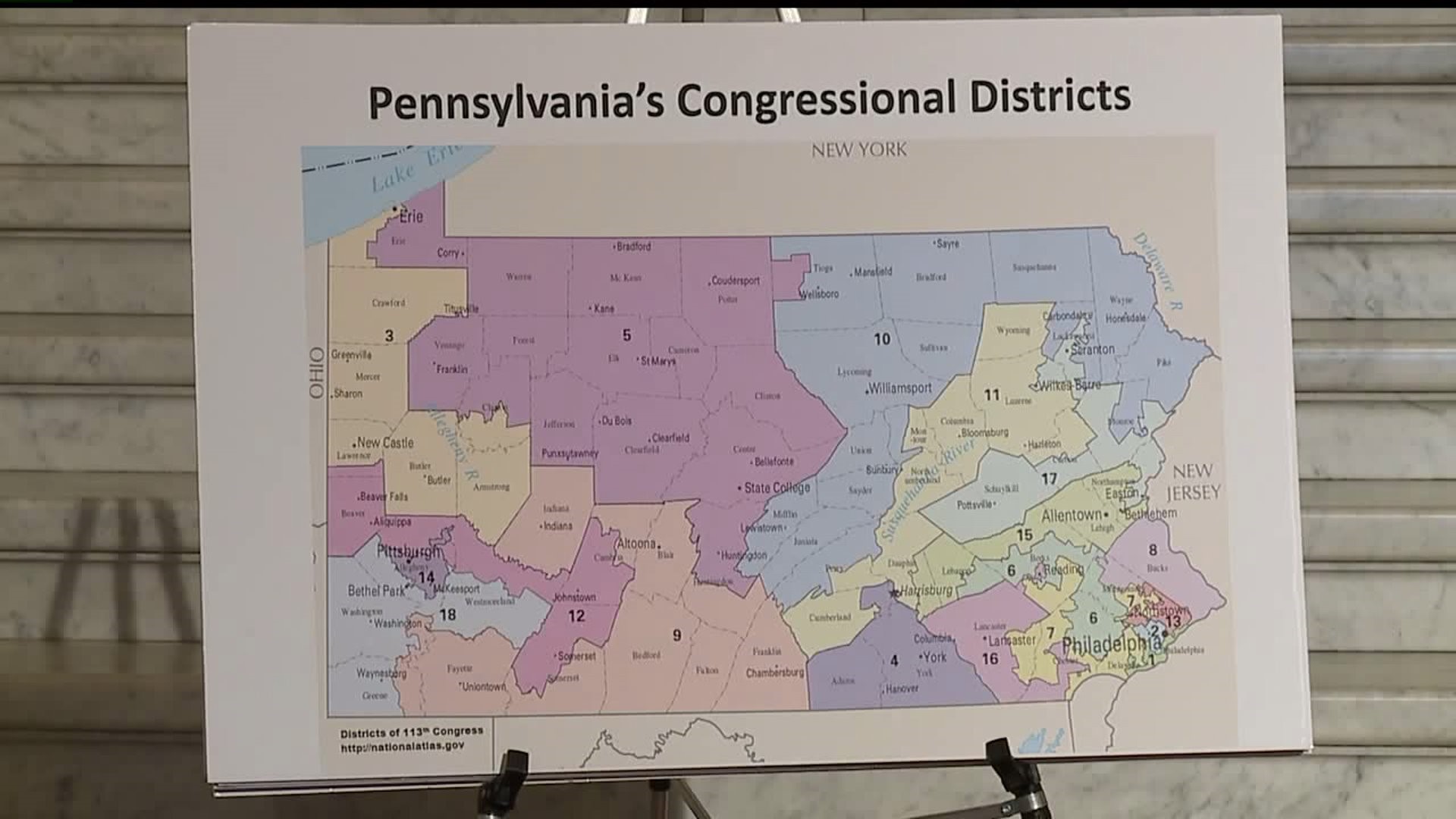HARRISBURG, P.A. --- The Supreme Court ruled Monday that the congressional district map is gerrymandered and needs to be redrawn.
In a ruling, it states the current congressional districts map "plainly and palpably violates the Commonwealth of Pennsylvania," prohibiting it's use in the May primary.
The 4-3 decision comes after a lawsuit claimed the map of 18 congressional districts in Pennsylvania was gerrymanders, or favoring one political party over the other, in this case, Republicans.
Suzanne Almeida, executive director with the League of Women Voters, who originally filed the lawsuit, said it's "a win for democracy in Pennsylvania."
"This is a step toward voters having votes that count and voters having the power back rather than those elected officials who drew the districts they wanted," said Almeida.
The court orders the legislature to do the following: a new map needs to be submitted to Governor Tom Wolf's office by February 9.
If Governor Wolf approves the new map, it needs to go back to the state Supreme Court by February 15.
However, if the legislature and Governor Wolf fail to get a map by those deadlines, the state Supreme Court will choose the map from options submitted through court proceedings.
Nathan Benefield, vice president and COO with the Commonwealth Foundations, said they support efforts to stop gerrymandering, but believe this decision by the state Supreme Court goes "too far."
"They have said, one, that the lines are unconstitutional without really saying why, ordering the legislature to redraw them. But then, they take the next step and say if you don't do it by this deadline, we'll just pick a map," said Benefield.
He said he worries the state Supreme Court will circumvent the historic legislative process of drawing district maps.
Benefield also said maps usually take about six months to redraw and the roughly two week deadline set by the court throws the upcoming elections "into chaos."
Almeida, however, said she believes a map can be submitted before the deadline.
"I have confidence in our legislators. They were elected to lead, they are leaders. I believe they can get a map that's better and together," said Almeida.
Governor Wolf issued the following statement regarding the decision: "I strongly believe that gerrymandering is wrong and consistently have stated that the current maps are unfair to Pennsylvanians. My administration is reviewing the order and we are assessing the executive branch's next steps in this process."
Tom Perez Chairman of the Democratic National Committee, issued the following statement: “In Pennsylvania and across the country, Republicans have gerrymandered congressional maps to rig elections in their favor. This practice undermines our democracy and deprives voters of an equal and meaningful voice at the ballot box. Today’s decision is a victory for democracy and another blow to the Republican Party’s nationwide effort to game the system. Democrats believe that voters should pick their representatives, not the other way around. And we will keep fighting to make sure our election process is fair to every voter.”
However, Pennsylvania Senator Jake Corman tweeted the GOP will ask the U.S. supreme court for a "stay," which would suspend the state Supreme Court's decision.
Val DiGiorgio, Chairman of the Republican Party of Pennsylvania, issued the following statement: “The Pennsylvania Supreme Court’s politically motivated decision is a partisan attempt to overturn the will of the legislature, which approved these congressional maps with Democrat votes in 2011. Back in 2010, this same court said these district lines were constitutional — the only things that have changed between then and now are makeup of the court and Democrats being dissatisfied with the results. This decision by judicial activists contradicts two-hundred years of precedent along with the findings of their own fact-finder, Judge Brobson. By legislating from the bench, Pennsylvania’s Supreme Court is throwing our elections into chaos and confusion. We intend to support efforts to secure a stay from the United States Supreme Court, similar to the recent stay granted in North Carolina."

